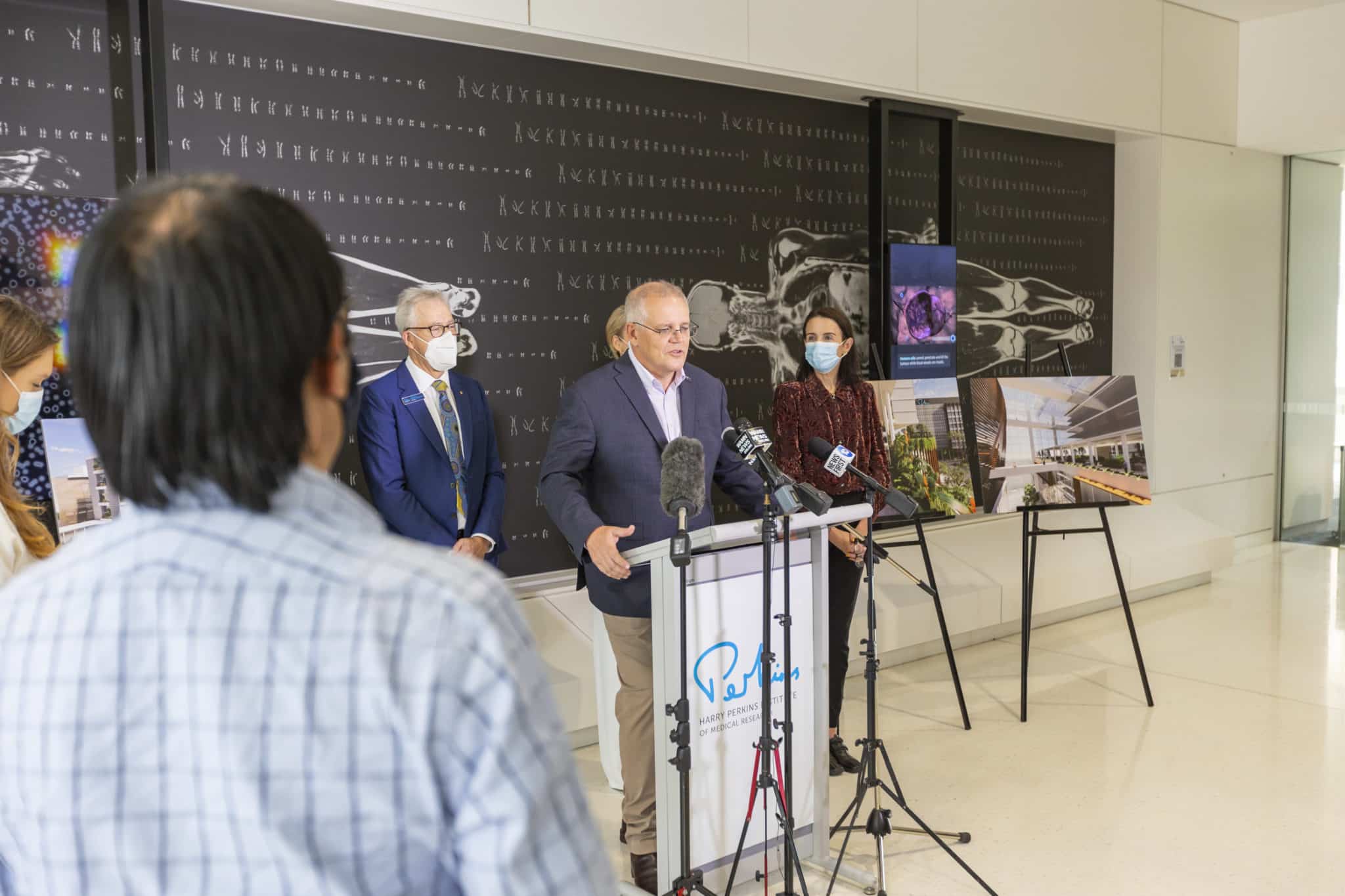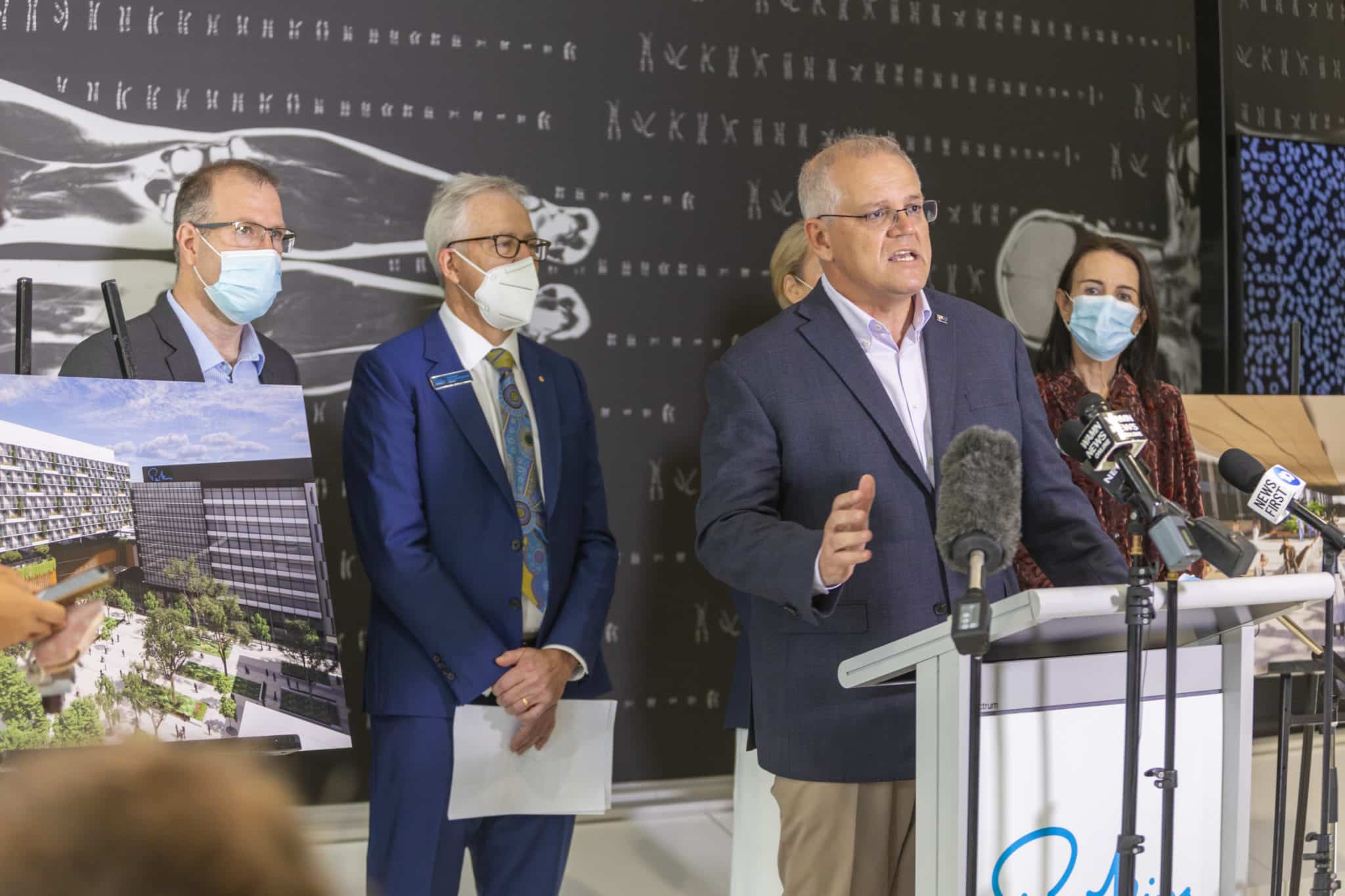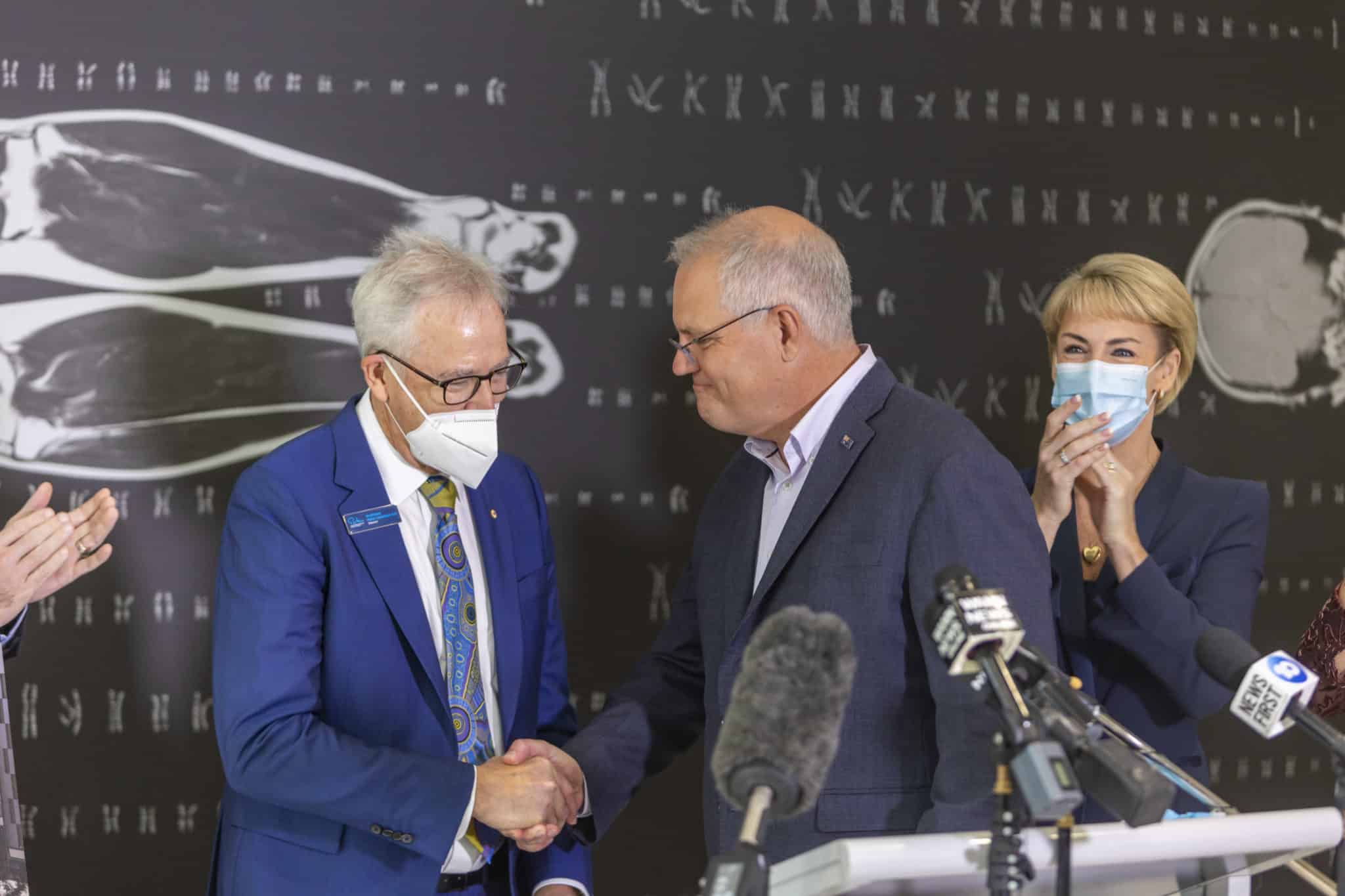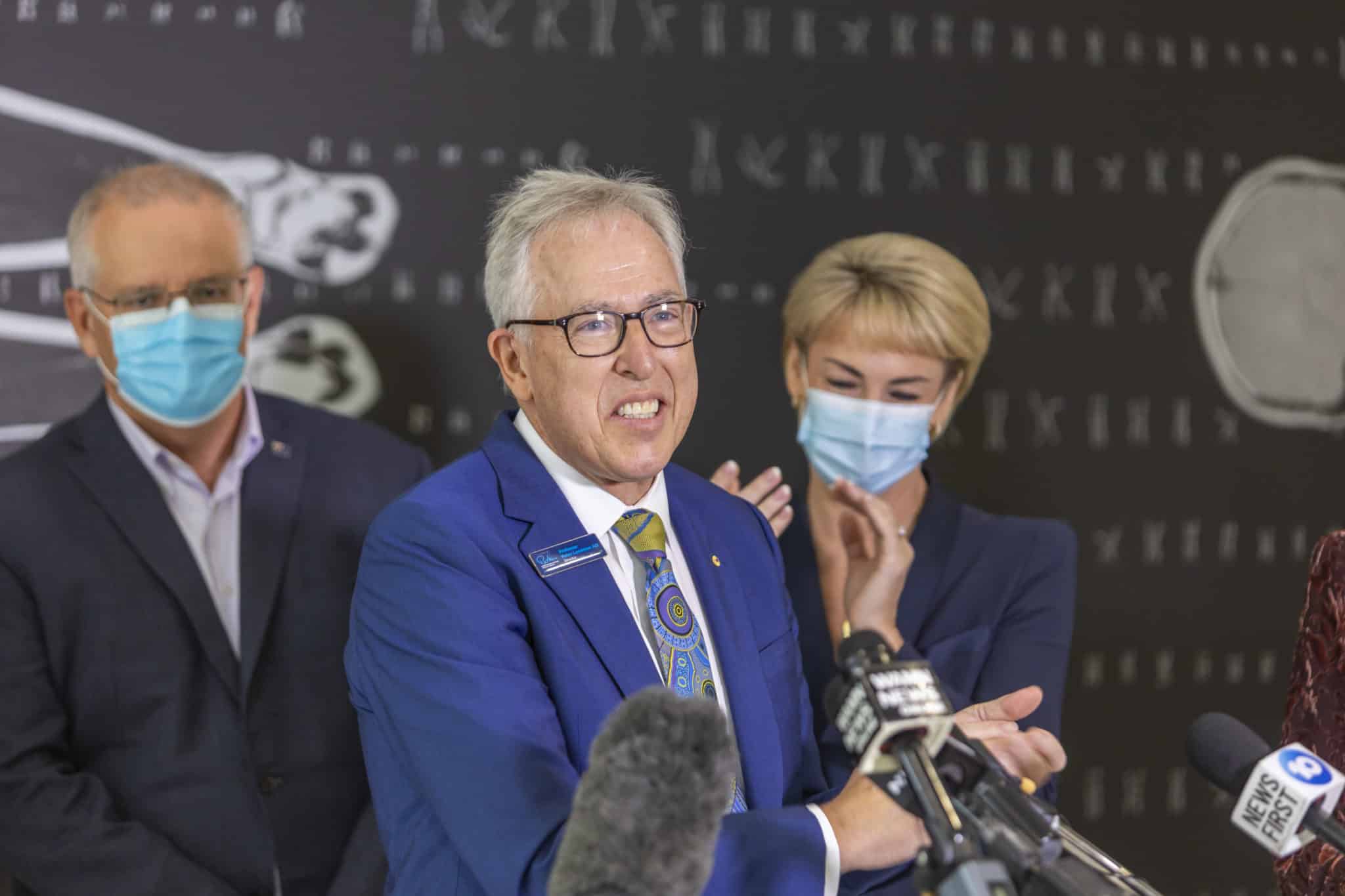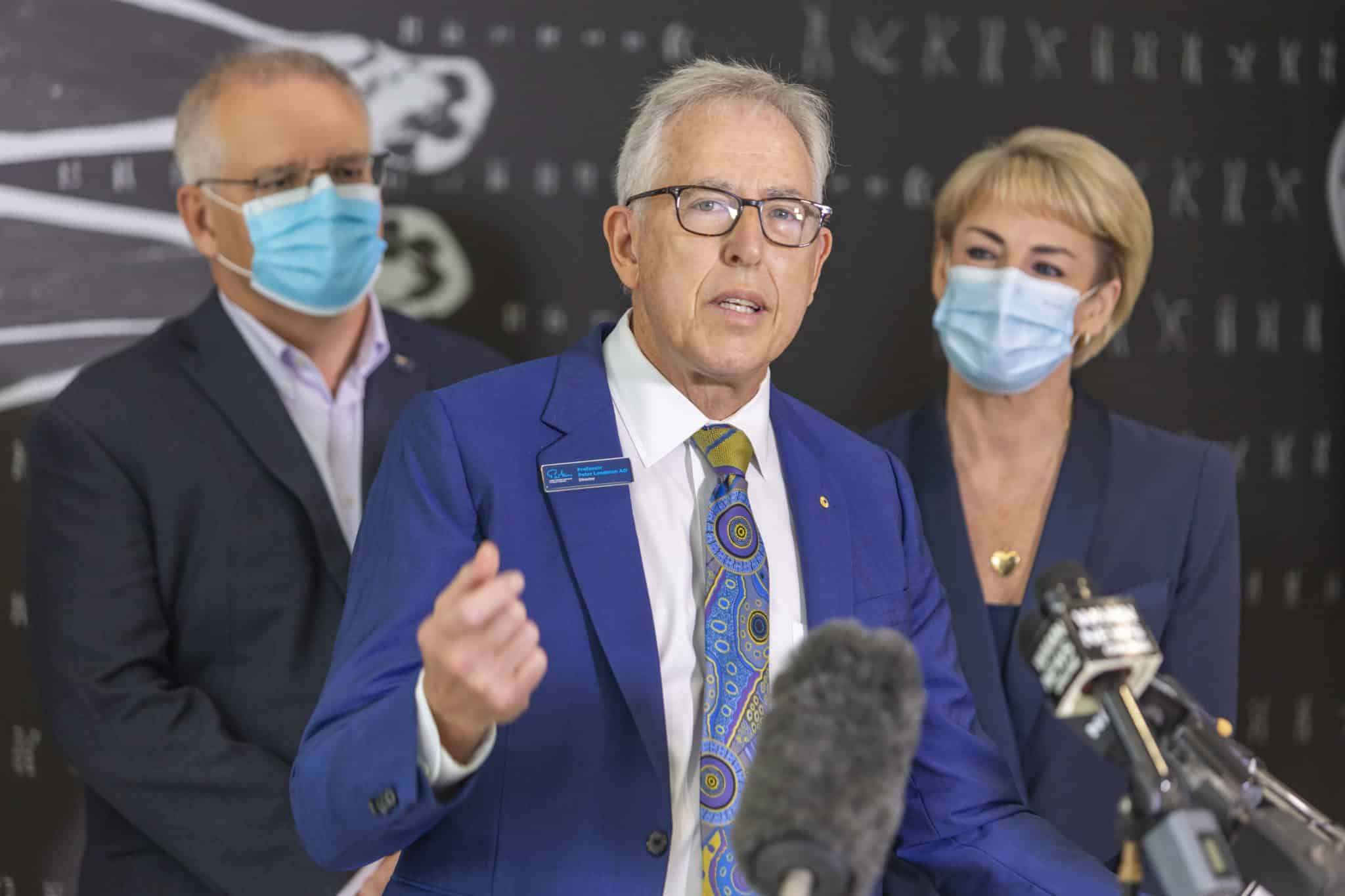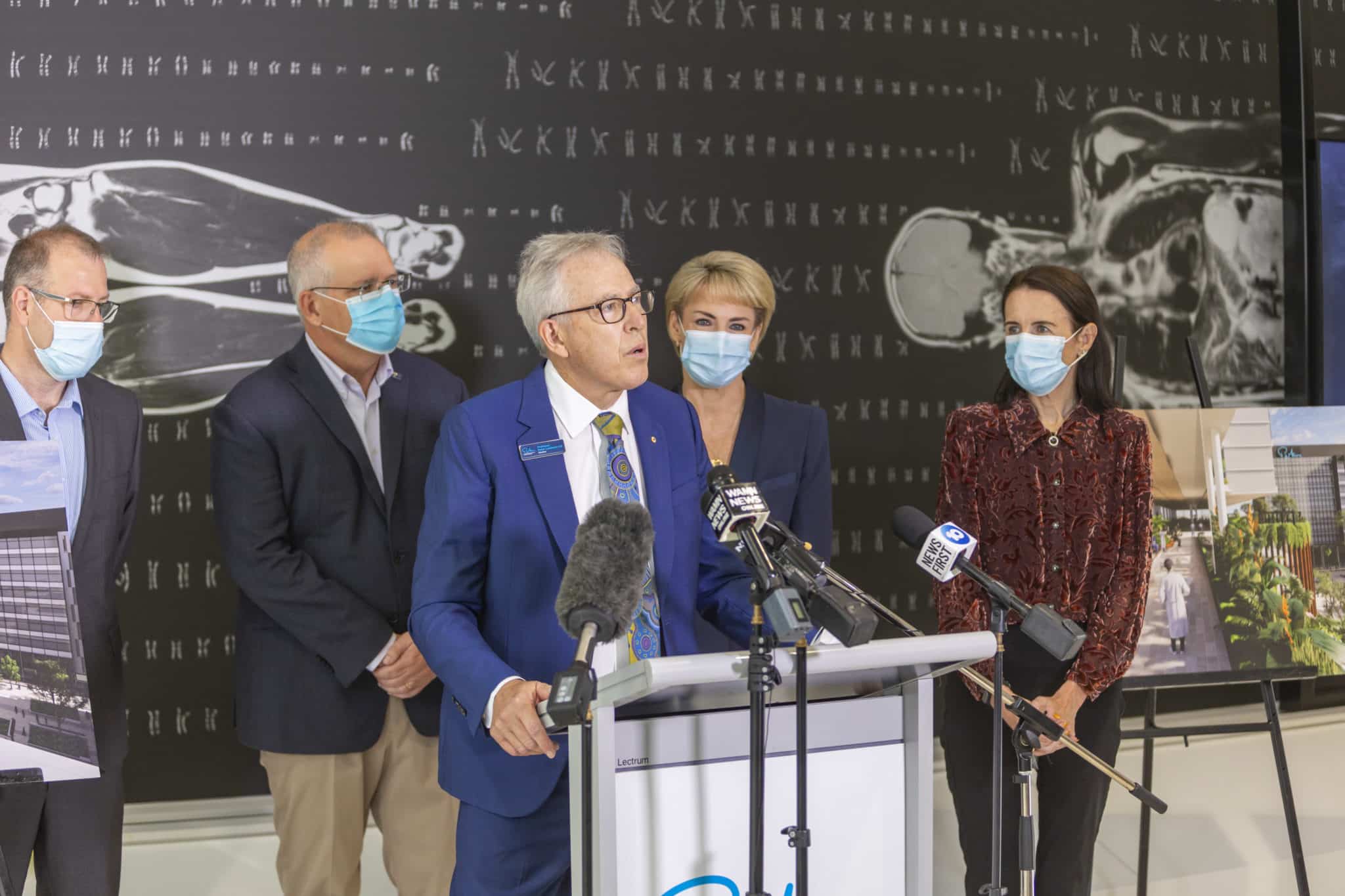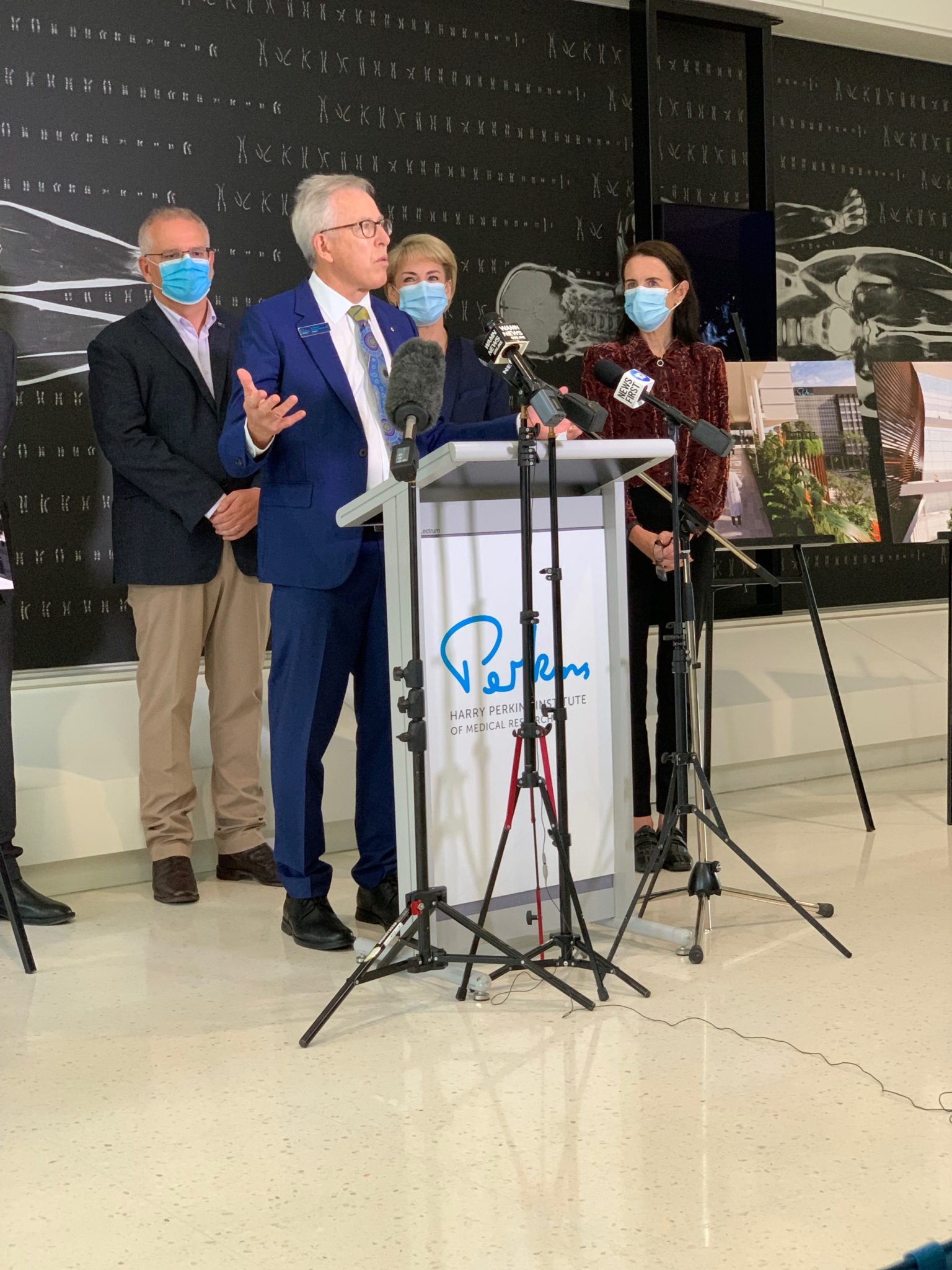
A new $750 million, truly comprehensive WA Cancer Centre that will transform cancer treatment, care and research in Western Australia, can begin development with $375 million support from the Federal Government.
The new centre, being developed by the Harry Perkins Institute of Medical Research (Perkins) and to be built at the QEII site, will ensure world-first cancer medicines, world-leading clinical trials, holistic supportive treatment therapies, an integrated and dedicated intensive care unit as well as new hospital beds solely for cancer patients all in one location.
Perkins Director, Professor Peter Leedman AO, said the Federal Government’s support was imperative for delivering the new centre which will put WA on the same footing as Victoria with the Peter MacCallum Cancer Centre and New South Wales with the Chris O’Brien Lifehouse. It will also enable WA to be part of an integrated national network of comprehensive cancer centres around Australia being developed by the Australian Government’s Cancer Australia agency.
“Comprehensive cancer centres use a model of care that is patient centred, integrated, research-based and delivered through multi-disciplinary teams working with co-located services,” Prof Leedman said
“Each patient’s case from diagnosis through treatment is coordinated, shared, and regularly assessed. Cancer research and trials of new treatments are integrated with patient treatment plans where possible.
“Support services are also integrated providing pain management, psychological support, physiotherapy and other holistic care that helps a patient manage treatment better and even stay with it for longer.
“For cancer patients to have a truly ‘one-stop-shop’ for all their treatment including intensive care, specialist appointments, imaging and scanning, operating theatres, chemotherapy, radiotherapy, complementary therapy, palliative care and rehabilitation – will be transformative.
“Until now, Western Australia was the only mainland State in Australia that did not have a truly comprehensive cancer centre in operation or in development. This is a visionary decision by the Federal Government and a major step in ensuring this truly comprehensive cancer centre is built to help thousands of Western Australians with cancer and their families.
“Western Australians deserve the best possible cancer care on their doorstep. This facility will provide that. On average, about 50 Western Australians a year travel to Victoria for cancer services and treatment they cannot get in WA. At a time when people are fighting for their life and family means everything, they should not have this added level of stress and disruption. This comprehensive cancer centre here in Perth will set that right and buy back precious time for families, while providing a higher standard of coordinated, cutting edge care for all cancer patients.
“This centre will provide a better and more coordinated cancer journey for patients and their families compared to the disjointed and sometimes confusing one they have now. Cancer care in Western Australia is excellent but fragmented and disconnected. This facility will radically change the cancer journey for patients with cutting edge precision medicine driving clinical care. Most importantly, it will lead to better outcomes with improved patient survival and quality of life while providing access to the newest drugs and treatments,” he said.
The centre would service public and private patients and have outreach into regional WA, including WA’s Indigenous communities.
Professor Leedman said the comprehensive cancer centre would also help enhance the QEII precinct as a medical centre of excellence, complementing the Perth Children’s Hospital, Sir Charles Gairdner Hospital, Telethon Kids Institute, Harry Perkins Institute of Medical Research, Pathwest and the new Mums and Babies Hospital.
“As with any project of this scale there is still a lot of work to do to get the centre built and running to service the community, but this is a huge and significant move that means so much for the State,” he said.
Research has shown that comprehensive cancer centres help save lives and reduce the stress and burden on patients and their families at a time when every day counts.
Cancer has a large impact on the WA health system, accounting for more than 158,000 cancer related hospital admissions per year (14.4 per cent of total hospitalisations).
The planned 10-storey comprehensive cancer centre will house approximately 300 beds and treatment chairs, 10 operating theatres and integrate leading cancer research laboratories and first in-person cancer clinical trials run by Linear Clinical Research Ltd (a wholly owned subsidiary of the Perkins) . It will comprise:
- 140 overnight and inpatient beds,
- 110 chemotherapy, medical and same day beds and chairs
- Up to 20 intensive care beds
- 40 Linear Clinical Research trial beds/chairs.
On site services will include:
- Imaging
- Pharmacy
- Gymnasium
- Chemotherapy, Medical oncology, Haematology and radiation oncology
- Palliative care and Community wellness centre with a focus on complementary therapies
- Day medical services
- CAR T cell therapy suite
- Perkins cancer laboratories
WA Health statistics published in 2020 show almost 13,500 people were diagnosed with cancer and 4,147 Western Australians died from it. There are more than 50,000 Western Australians living with cancer.
The chance of developing cancer increases with age and in WA’s older population (people aged 65 years and over) it is projected to increase by 50 per cent over the next 10 years. By 75 years of age, one in three males and one in four females will have cancer.
It is predicted that in 2025 more than 17,000 West Australians will be diagnosed with cancer and more than 5,500 will lose their lives to cancer.
Media Assets:
WA Comprehensive Cancer Centre website
END
Media Contacts: [email protected]
Development of the WA Comprehensive Cancer Centre is being led by Professor Peter Leedman AO, Director of the Harry Perkins Institute of Medical Research (the Perkins). The Perkins is a leading WA medical research institute dedicated to tackling the diseases that most affect our families in the WA community and the world at large.
Patient story
Biography – Associate Professor Shannon Simpson
Assoc Prof Shannon Simpson navigates both sides of the healthcare sector and is an advocate for a more streamlined cancer journey for patients.
She is the head of a successful medical research team (Children’s Lung Health) at the Telethon Kids Institute and Curtin University and has survived cancer twice – all before the age of 40.
Shannon was diagnosed with breast cancer in 2009 when she was in her late 20’s. At that stage she was in Melbourne finishing up her PhD. She subsequently moved to Perth to continue her research in respiratory physiology and in 2013 her cancer returned, this time in the top of her femur. She has continued to progress her career in research while navigating the complex journey of long term cancer treatment.
Shannon is passionate about advocating for and involving people with lived experience in health and medical research. She has represented consumers on several cancer related community advisory groups, initiated peer support activities for young adults with cancer as the WA Ambassador of The Warwick Foundation and participated in numerous fundraising endeavours, including the Ride to Conquer Cancer, as well as Sock it to Sarcoma and The Pirate Ship Foundation (children’s brain cancer research) activities.


